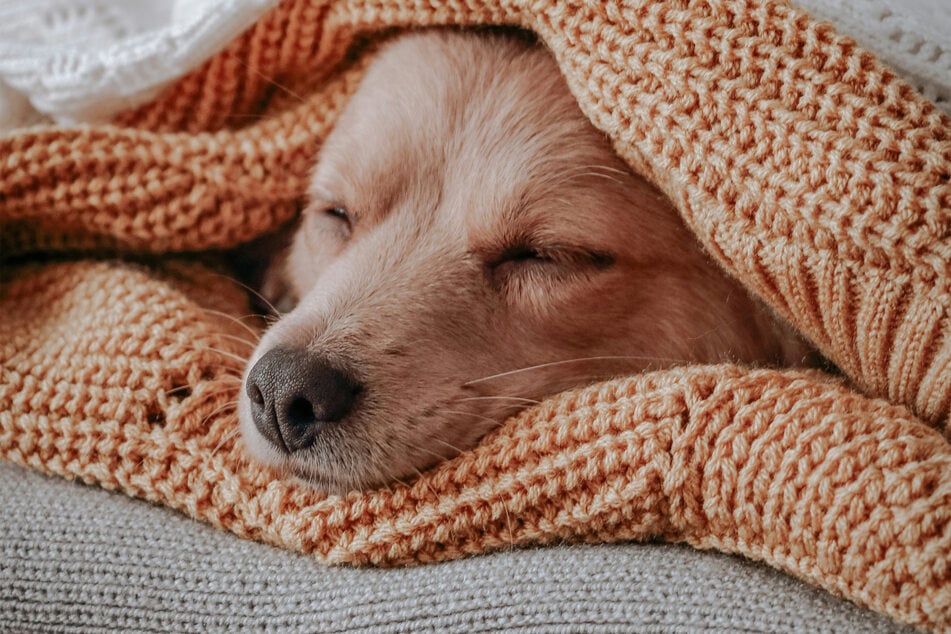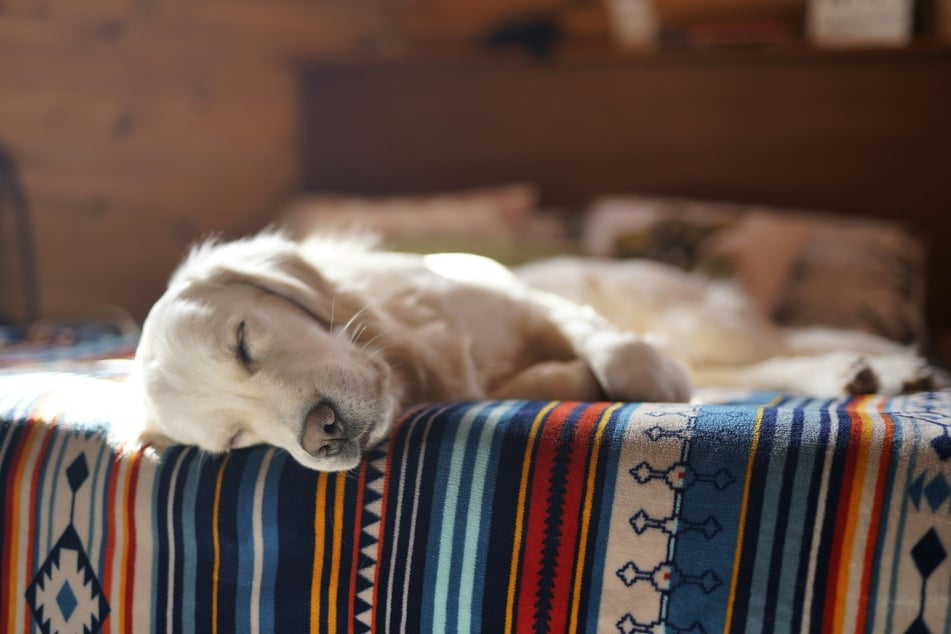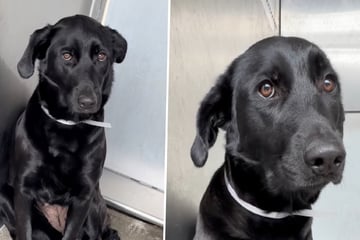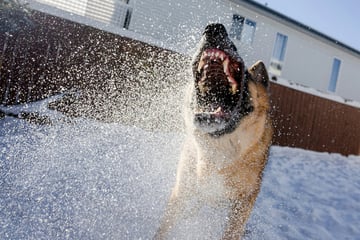Why is my dog twitching in its sleep?
Sleeping dogs are incredibly cute and incredibly calming to look at. Yet, sometimes dogs seem to twitch constantly as they snooze, restless and uneasy. Why might this be?

Dogs don't always sleep peacefully.
Sometimes they twist and turn, snore and snuffle, uncomfortable in their dreams and under their breath.
What could be behind this strange phenomenon, why is my dog twitching in its sleep, what are the symptoms to look out for, and when does it actually get dangerous and concerning?
Let's take a look.
Symptoms of dog twitching in sleep
Twitching while asleep is a pretty normal thing for a dog to do, as long as it fits into a specific set of criteria. As we detail later in this article, there are signs to look for that could indicate a variety of health problems if you witness them, but light twitching is not a sign of something particularly dangerous, and you shouldn't worry about it too much.
Here are the symptoms of a dog that's healthily twitching:
- Stiff muscles overall
- Flicking ears
- Twitching legs
- Sudden shakes
- Kicking
- Rolling over
- Short and quiet barks
- Tail twitching
Be careful: While dogs will naturally twitch in their sleep, and a little bit of twitching is perfectly healthy and normal, there are circumstances in which twitching is neither normal nor okay. Keep an eye out for these occasions.

Why is my dog twitching in his sleep?
There is nothing unusual or worrying about a dog twitching in its sleep every now and again, but that doesn't mean that it will always be innocuous. Instead, there are a range of reasons which could explain why your dog is exhibiting this strange and sometimes worrying behavior.
What's most important is that you identify the reason why your dog is twitching before taking any action. To do so, look for any other symptoms that could indicate a more sinister reason for this behavior. For example, if the dog is twitching due to arthritis it will show noticeable signs of trouble walking.
Here are the most common reasons why dogs twitch in their sleep:
- Innocuous, no reason, twitching caused by unknown and unimportant signals being sent from the brain to the extremities (most common)
- Dogs dream and, when they do, they can physically twitch and move (most common)
- As a dog grows, it will get a little bit sore from time to time, causing twitches and unusual movements (most common)
- Severe anxiety
- Fear from the outside, such as noise or physical touch
- Stiffness in the muscles and soreness from exercise, pulled muscles, etc
- More serious physical health issues
- Arthritis
If you think that your dog is afflicted by any of the final five reasons listed here, it's time to go to the veterinarian.
Is a dog twitching in its sleep or having a seizure?
You will know quite clearly if your dog is twitching or having a seizure. Twitching will be light and insignificant, brief movements in the paws, but a seizure will take hold of the entire body and get quite violent. If the latter happens, you need to try and wake your dog, keep it relatively comfortable on a soft pillow or blanket, and get in touch with the veterinarian as soon as possible.
When is dog twitching in sleep dangerous?

While your dog is likely completely fine if it has twitched a couple of times while sleeping, there is still a possibility that it is unwell and in danger. The key here is to know what to look out for and then react appropriately if you witness these symptoms. If you can do this, your dog will be in good hands.
Here are a few signs that your dog's twitching is getting dangerous:
- If your dog goes into a full-blown seizure, as described above
- If your dog suddenly starts vomiting
- If you see any particularly scary symptoms, such as foaming at the mouth, bleeding, or something similar
- If your dog loses control of its bodily functions, wets the bed, or does worse
- If your dog's eyes are wide open, but it isn't moving except for violent shakes and twitching
In general, if your dog exhibits any symptoms that would already be worrying without the fact that they're twitching in their sleep, something more serious could be wrong.
How to treat a dog twitching in its sleep
We do not recommend taking on any home remedies if your dog is violently and worryingly twitching in its sleep. You are not a doctor and should not pretend to be one, as this can be very dangerous for the well-being of your darling doggo. Instead, be responsible and take it to the veterinarian as soon as possible.
The only thing that you can do is make your dog as comfortable as possible in the meantime. Make sure that it is lying on something soft and there are no potential hazards nearby. Keep it well-fed and monitor it closely until you can get it proper treatment.
You shouldn't worry too much if your dog is twitching in its sleep. Simply look out for the warning signs and, if none show, try not to concern yourself and just let sleeping dogs lie.
Cover photo: Unsplash/Danny Avila





